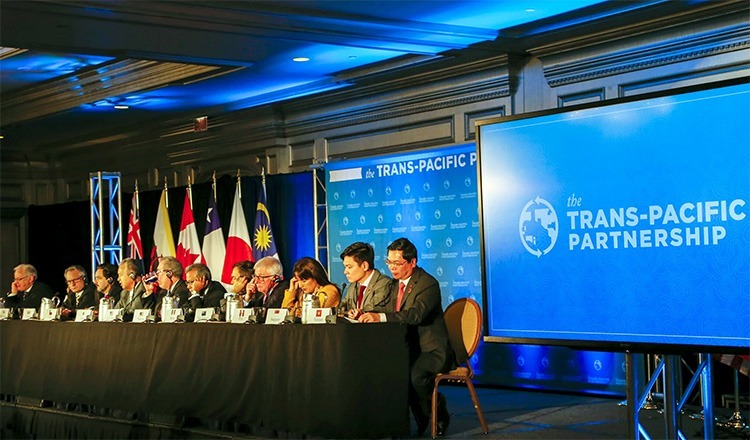
TPP Text Reveals Broad New Powers for Corporations to Attack Food Labeling Laws
Today, the Obama administration released the long-secret text of the proposed Trans-Pacific Partnership (TPP) trade deal that would weaken consumer protections, undermine U.S. food safety standards and prevent commonsense food labeling. The language included in the TPP is more aggressive than previous trade deals and provides broad new powers for other countries and foreign corporations to challenge U.S. food safety and food labeling measures.
November 5, 2015 | Source: EcoWatch | by Wenonah Hauter
Today, the Obama administration released the long-secret text of the proposed Trans-Pacific Partnership (TPP) trade deal that would weaken consumer protections, undermine U.S. food safety standards and prevent commonsense food labeling. The language included in the TPP is more aggressive than previous trade deals and provides broad new powers for other countries and foreign corporations to challenge U.S. food safety and food labeling measures.
The TPP is a giveaway to big agribusiness and food companies that want to use trade deals to attack sensible food safety rules, weaken the inspection of imported food and block efforts to strengthen U.S. food safety standards. The food and agribusiness industries inserted language into the text of the TPP that will undermine U.S. food safety oversight and expose consumers to risky imported foods.
The TPP includes a new provision designed to second-guess the government inspectors who monitor food imports. The so-called Rapid Response Mechanism allows companies to challenge border inspection procedures that companies claim cause unnecessary delay—like holding suspect shipments while awaiting laboratory test results—and demand that a TPP panel of experts review and provide guidance on the inspection. This would create a chilling-effect on rigorous border inspection that would be especially dangerous for problems that are not obvious, like chemical or drug residues that would only appear after more thorough examination and testing.
The TPP will increase the volume of imported and potentially risky foods coming into the U.S., but tie the hands of the border inspectors who are the last line of defense between the shipper and the supermarket. The TPP gives companies new powers to second guess inspectors and push uninspected food onto the market.
The TPP food safety rules also include a host of deregulatory catch phrases and code words that are considerably stronger than the food safety rules in prior trade deals like the World Trade Organization. The food and agribusiness industry demanded—and received—stronger sanitary and phytosanitary (SPS ) disciplines that make it harder to defend domestic food safety standards from international trade disputes. It also directs the U.S. to expand the current policy of recognizing foreign food safety systems that are not as strong as ours.
American consumers are pushing to block the use of artificial and potentially risky processes and ingredients, like antibiotics and GMOs, but the TPP could trump these democratic efforts to improve our food supply.
